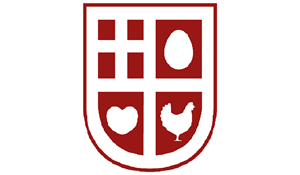New coat of arms quality stamp for Danish eggs
If you go shopping for eggs to have with your breakfast, you may notice a new label printed directly on the Danish eggs. The new label is there to enable consumers to distinguish them from foreign ones.
The article continues below.
By Bente D. Knudsen
This week the Danish Egg Association launched a special coat of arms label for Danish eggs; it shows the Danish flag, an egg, a hen and a heart printed directly on the eggshell. The reason? To make sure that consumers can distinguish Danish eggs from foreign imports.
Danish eggs are, according to the Danish Egg Association, of a higher quality than foreign ones. For instance, the Danish eggs are test for salmonella every second week, whereas in many other countries the test only takes place every 12 weeks.
The article continues below.
Because of the very effective control system, Danish eggs have since 2012 received the special status of being “Salmonella free”, and the use of antibiotics in laying hen flocks in Denmark is almost zero.
In Denmark the vaccination against Salmonella is not allowed, instead the very strict Salmonella legislation has made the industry put in place a very rigorous salmonella program, where hen flocks must undergo Salmonella control throughout all of the production process.
In contrast to other countries, all types of Salmonella are included in the programme and vaccination against Salmonella is not allowed.
According to the Danish Agriculture & Food Council Danish eggs are in general healthier and safer to consume than foreign eggs.
The salmonella free status means that consumers can again use and eat raw Danish eggs in their food.
With the new label, the association wants to ensure that consumers can easily see the origin of their eggs, as a range of supermarkets have started selling foreign eggs, often at a lower price.
” We want the consumers to know that Danish eggs are the world’s safest and healthiest eggs. Top that with the fact that they are produced with hardly any use of antibiotics and with great care for the welfare of the hens,” says sector manager from the Danish Egg Association, Jørgen Nyberg Larsen.


